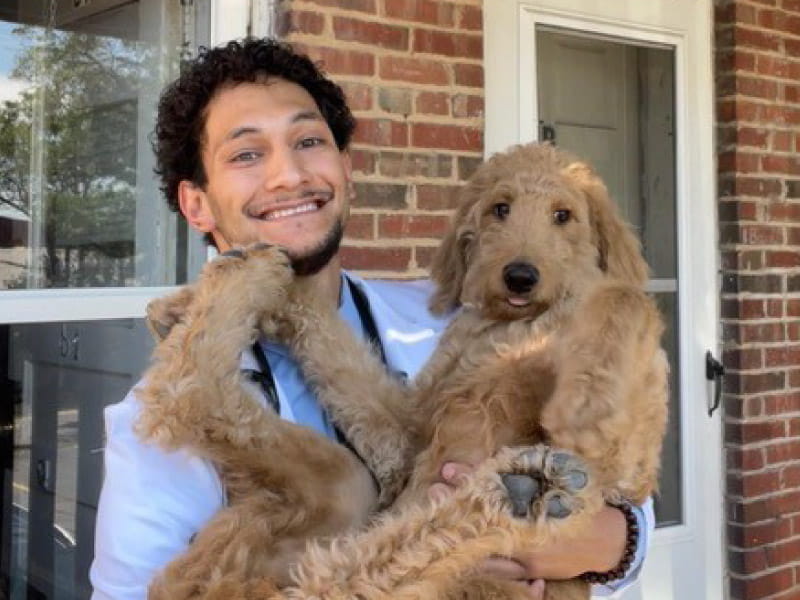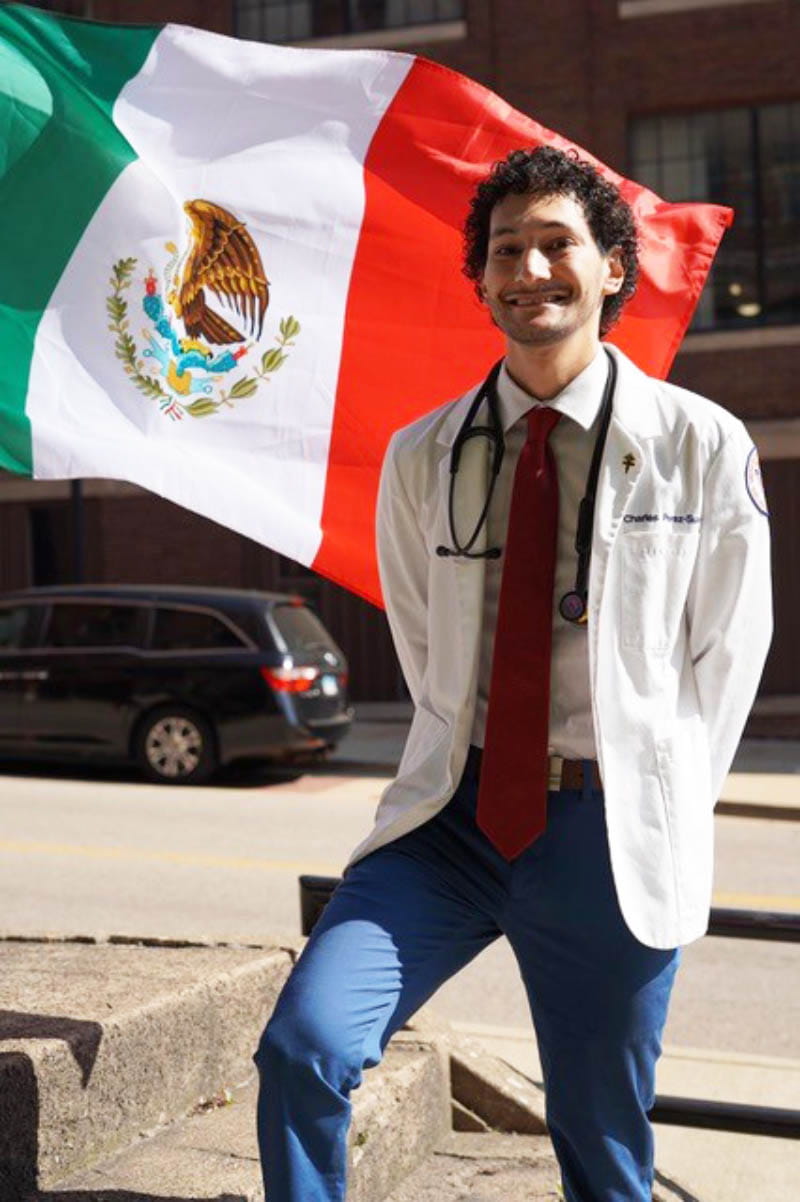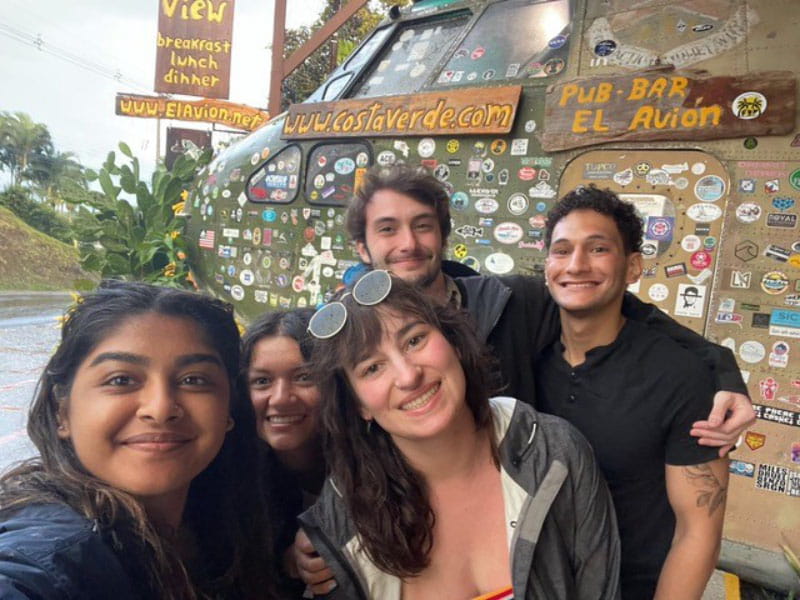Drugstore job and volunteer work put him on a path to a career in medicine
By Lucien Chauvin, American Heart Association News

Charlie Pérez-Suárez got his first job as soon as he turned 16, a way to help out his parents, immigrants from Michoacán, México.
That job, in a drugstore in the Chicago suburb of Warrenville, would set him on a sometimes-winding path to medicine.
"I asked if there was a chance to work in the pharmacy because none of the pharmacists spoke Spanish," he said. "They agreed, and I realized right away that I liked working in health care and with patients."
Pérez-Suárez moved to Peoria, Illinois, to attend Bradley University, the first in his family to attend college. His major, biomedical science, included the core classes he would need when he decided on a career in medicine. He considered studying to become a pharmacist and then a dentist, but an email about a free clinic that provided specialized health care caught his attention. The clinic needed Spanish interpreters, so he signed up as a volunteer after completing his second year at Bradley.
The work jogged all sorts of memories of growing up in a Spanish-speaking household. It helped him make his career choice.
"When I was 5, I would translate for my parents," Pérez-Suárez said. "I was translating legal documents just as I was just learning how to read. I would translate at the store or for a doctor's appointment. It drastically impacted everything in my life."
Pérez-Suárez did all sorts of work at the clinic, including taking care of the front desk and helping register patients. But it was interpreting for a quiet patient that cinched his decision.
"The first patient I translated for looked just like my mom," he said. "As soon as she heard that I spoke Spanish, she perked up and began talking a lot more. It was really rewarding. I could picture my parents."
He switched majors after that summer, returning for his junior year as a pre-med student. His biomed classes satisfied course requirements, but he needed to concentrate on the MCAT exam to qualify for medical school.
Pérez-Suárez is now in his final year at the University of Illinois College of Medicine Peoria. He will finish his coursework in February and graduate in May. He is a scholar in the American Heart Association's National Hispanic Latino Cardiovascular Collaborative, a program that promotes the treatment and prevention of heart disease and stroke and the elimination of health disparities for the Hispanic population in the U.S.
After graduation, Pérez-Suárez wants to work with the heart but is torn between pediatric cardiology and adult cardiology. He has a particular interest in cardiac electrophysiology, which focuses on heart rhythm issues.
"I love cardiology. Everything just makes sense with the heart," Pérez-Suárez said. He recalled doing arrhythmia research during a summer in Chicago. An attending physician allowed him to scrub in and watch a surgery. "When you have someone who welcomes you, it spikes your interest," he said.

Despite the demands of medical school, Pérez-Suárez continues to work at Córdoba Healthcare clinic in Peoria, where he now trains new volunteers.
Kathy Mohns, a nurse who has been with the clinic since its start, said Pérez-Suárez will be sorely missed when he graduates.
"Charlie is just an amazing young man. He has been instrumental in so many different things here for all these years, and I am going to miss him," she said. "I am very excited for his career because he is going to be a great asset wherever he lands."
Pérez-Suárez also helped to set up a direct admissions program that brought together Bradley and the University of Illinois College of Medicine Peoria last year.
"When I started medical school, we introduced the idea of the direct admissions program as a way to keep doctors in Peoria," he said. "Now, if you get accepted into this program at Bradley, as long as you maintain a certain GPA and a certain MCAT score, you are guaranteed acceptance at the College of Medicine. It was nice to get that plan in place," he said.
While it might seem hard to imagine Pérez-Suárez packing more into his life, he makes time to enjoy it: taking care of his two dogs, teaching himself guitar and running. He is training for the Chicago marathon in October.
The extracurricular activities help him stay grounded. "I felt that I was starting to burn out in medical school, so I picked up running. It helps to keep me focused," he said.

After graduation in May, he wants to land a residency in a bigger city with a large Spanish-speaking population.
"There is a need for Spanish-speaking physicians, especially cardiologists," he said.
"It is something that hits home with me from my experience with my parents," he said. "The only time I did not have to translate was with my pediatrician, who spoke Spanish. Even as a kid, I could see the difference (that made) with my mother."





